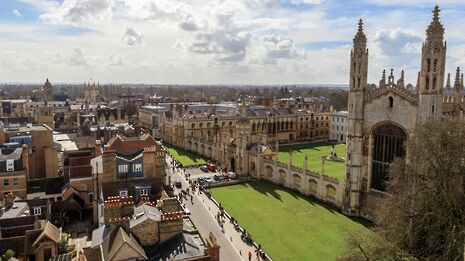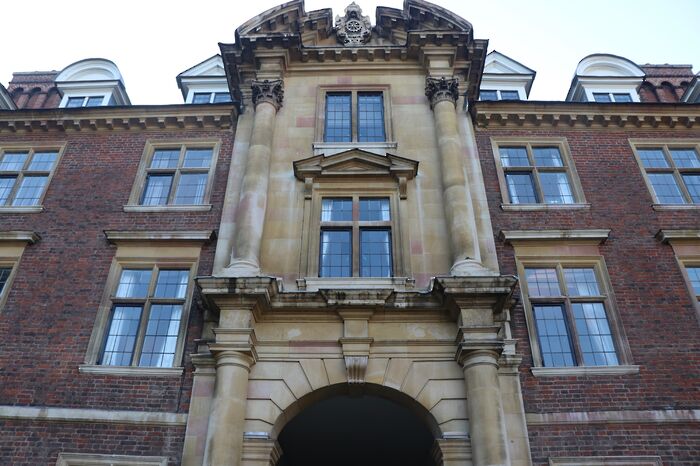Philanthropy should extend beyond elite institutions
Other universities could benefit from the Harding donation, says Dan Wright

Billionaire financier David Harding’s donation of £100m to the University of Cambridge made headlines this week. Vice Chancellor Stephen Toope glowed in his praise for Harding and called the donation “extraordinarily generous”. This was the single biggest donation by a British philanthropist to a British university, ever. However, for some media outlets, this story was about more than a graduate giving back to his alma mater.
News of the donation came only days after the head of Arts Council England suggested that the rich should be shamed by society into paying their fair share. The Spectator seized upon this aspect of Harding’s donation. Calling it “the perfect antidote to Corbynism”, they demonstrated that the rich could donate to good causes like widening Cambridge access and be celebrated for doing so.
Could Harding spark a trend among Britain’s billionaire class? Could Britain follow America’s lead and become a land where top universities regularly take money from public philanthropists with big hearts and even bigger wallets? Would this even be a good thing?
Such approach would work wonders for the 1% who seek to rehabilitate their reputations and public image. For the beneficiaries of the donations, the money would be more than welcome. However, when we consider the interests of the many, particularly in the realm of higher education, the pitfalls of relying on philanthropy for progress become apparent.
Part of the problem with philanthropy in higher education is the narrow set of institutions that benefit from it. Donations to British universities have hovered around or below the £1bn mark for some years now. Nonetheless, its biggest winners are awfully predictable. Oxford and Cambridge are by far the biggest recipients. According to the Ross-CASE study of university donations, the two institutions received over £16m in 2016-17. In comparison, the other 22 members of the Russell Group received £12.4m. All other UK universities surveyed less than £3m.
“For the 1% trying to rehabilitate their public image, this would work wonders for their reputations”
Why should our elite institutions be the ones who receive these vast swathes of money? One answer may be that our alumni are more likely to end up in employment that allows them to make these huge donations, and the desire to give back to your alma mater is perfectly understandable. But the situation seems perversely unfair. It is not a case of “to each according to their need” but “to each according to their prestige”. Far from being egalitarian, this fundraising culture chiefly serves the interests of universities already at the top.
So when institutions like Birkbeck, with student bodies more diverse and less privileged than those of Oxford or Cambridge, face financial difficulties, I find the tendency of philanthropists’ money to go where it is perhaps less needed difficult to justify. America shows us where this road leads: elite colleges like Harvard raise over $1bn while neighbouring colleges who serve the less privileged – the real engines of social mobility – struggle to make ends meet.
“Far from being egalitarian, this fundraising culture chiefly serves the interests of universities already at the top”
Of course, this would be less of an issue if these donations were used to advance access at the top. Sometimes, progressive intentions are written into the terms and conditions of the donation: Stormzy’s scholarship for black students is an example of this.
While my intention is not to diminish Harding's act of charity, the current plans for the use of his donation do not prioritise outreach. Yes, the donation includes £79m to support postgraduates and £20m to establish a fund to encourage alumni donations to support undergraduates; however, only £1m is dedicated towards access schemes. Not only is this a missed opportunity – imagine how transformational this money would be if it were to be used to double or triple Cambridge’s access funding – but it also demonstrates how private donations may not always incentivise the best and boldest solutions to access problems.
So what should the way forward be? One approach would be to levy higher taxes on billionaires and millionaires. This would allow their money to be redistributed fairly across society and within the education system.
If the political willpower was there, the public purse could provide stable funding for all universities, re-establish generous maintenance grants, and incentivise elite institutions to open their doors to a more diverse range of people. The state could take on the private schools and revitalise comprehensive education in Britain.
In the meantime, while we thank David Harding for his incredible generosity, we should also take the chance to reflect on other important causes that money could be directed to – not least our struggling state schools, colleges, and universities.
 News / Report suggests Cambridge the hardest place to get a first in the country23 January 2026
News / Report suggests Cambridge the hardest place to get a first in the country23 January 2026 Arts / Exploring Cambridge’s modernist architecture20 January 2026
Arts / Exploring Cambridge’s modernist architecture20 January 2026 Comment / The (Dys)functions of student politics at Cambridge19 January 2026
Comment / The (Dys)functions of student politics at Cambridge19 January 2026 Theatre / The ETG’s Comedy of Errors is flawless21 January 2026
Theatre / The ETG’s Comedy of Errors is flawless21 January 2026 News / Students condemn ‘insidious’ Israel trip23 January 2026
News / Students condemn ‘insidious’ Israel trip23 January 2026









